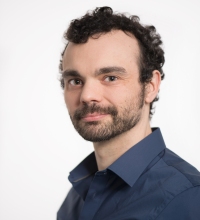
Time & Date
21.07.2022
5-7 ct
Room 47.0.501 (Teaching block WWP)
Universität West
Albert-Einstein-Allee 47
89081 Ulm
Local Host:
Prof. Dr. Birte Glimm
Links:
ANU College of Engineering & Computer Science
Cognitive Systems M.Sc.
Abstract: Automated Planning is a technology that enables reasoning about finding courses of action that transform the currently observed state into one that's desired. Applications cover various fields including for example automated factories and robotics. In this talk, the speaker gives an introduction to Planning and surveys some of his contributions to the field, specifically to non-linear and hierarchical planning. Surveyed contributions span from theory to practice and contain complexity investigations (determining the computational complexity of solving a problem), approaches for solving such problems efficiently, and practical applications. For the latter, two assistance systems are introduced, which -- based on Automated Planning and other technologies -- assists a human user in carrying out complex tasks such as do-it-yourself (DIY) projects or assembling a home theater.
Bio: Dr. Pascal Bercher is a Senior Lecturer (eq. to US Associate Professor) at the Australian National University (ANU). He studied Computer Science with minor Cognitive Science at the University of Freiburg, Germany (from 2003 to 2009). He then went to Ulm University, where he obtained his Dr. rer. nat. in 2017, obtained at the Institute of Artificial Intelligence, formerly headed by his former supervisor Prof. Susanne Biundo-Stephan. He stayed at the institute for two more years until he got a tenure-track position as Lecturer at the ANU.
During is PhD and post-doc at Ulm University, his research was concerned with theoretical investigations of AI Planning technology as well as the development and deployment of said technology in Companion Systems. Two main practical outcomes were AI- and planning-based assistance systems that assist their human users in the execution of complex tasks. One of these systems was created in collaboration with Robert Bosch GmbH. Today at the ANU, his research focuses mainly on theoretical investigation of an hierarchical approach to planning, much of which is motivated by human beings in the loop.

Time & Date
21.07.2022
5-7 ct
Room 47.0.501 (Teaching block WWP)
Universität West
Albert-Einstein-Allee 47
89081 Ulm
Local Host:
Prof. Dr. Birte Glimm
Links:
ANU College of Engineering & Computer Science
Cognitive Systems M.Sc.